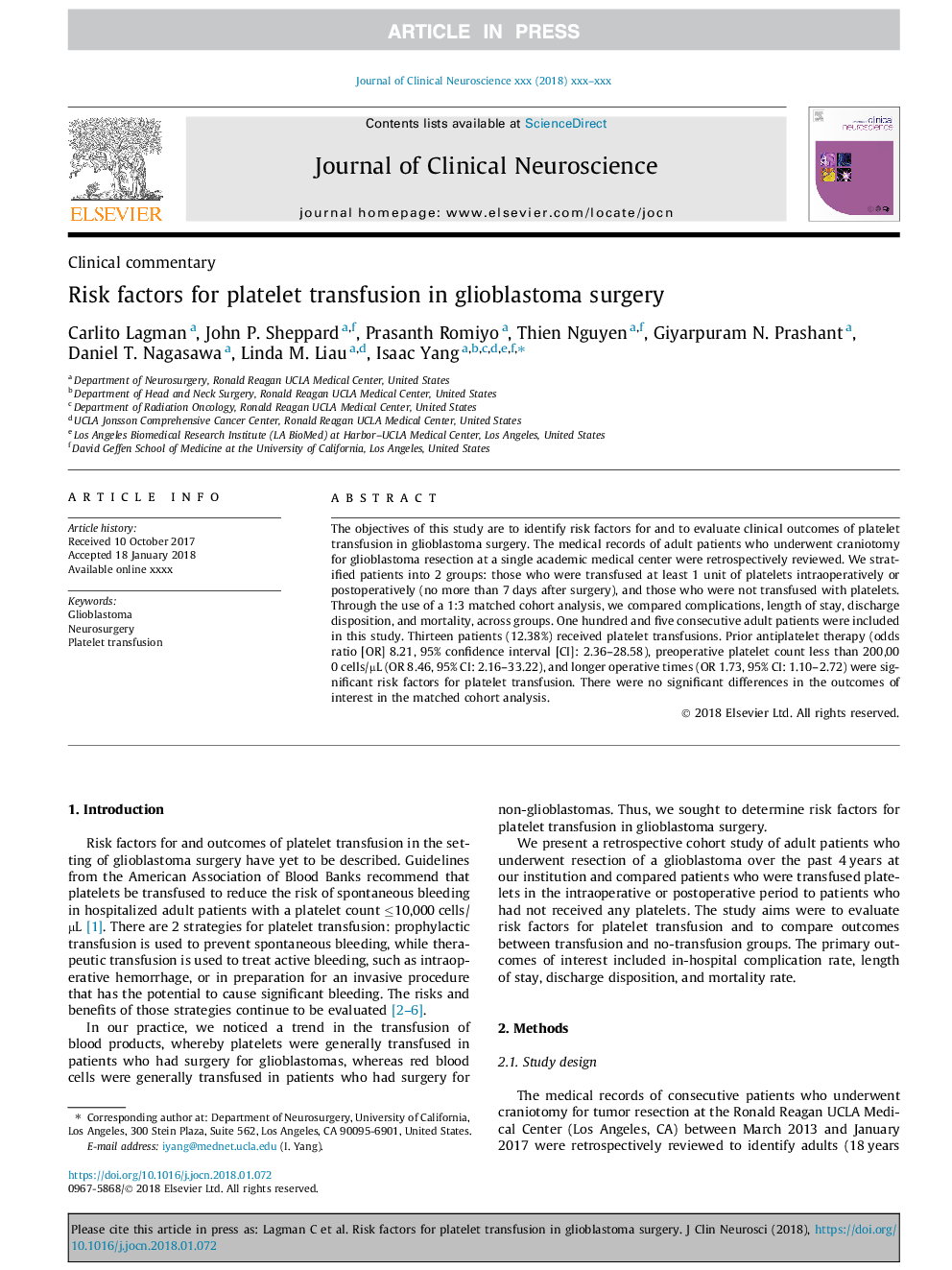| Article ID | Journal | Published Year | Pages | File Type |
|---|---|---|---|---|
| 8685160 | Journal of Clinical Neuroscience | 2018 | 5 Pages |
Abstract
The objectives of this study are to identify risk factors for and to evaluate clinical outcomes of platelet transfusion in glioblastoma surgery. The medical records of adult patients who underwent craniotomy for glioblastoma resection at a single academic medical center were retrospectively reviewed. We stratified patients into 2 groups: those who were transfused at least 1 unit of platelets intraoperatively or postoperatively (no more than 7â¯days after surgery), and those who were not transfused with platelets. Through the use of a 1:3 matched cohort analysis, we compared complications, length of stay, discharge disposition, and mortality, across groups. One hundred and five consecutive adult patients were included in this study. Thirteen patients (12.38%) received platelet transfusions. Prior antiplatelet therapy (odds ratio [OR] 8.21, 95% confidence interval [CI]: 2.36-28.58), preoperative platelet count less than 200,000â¯cells/µL (OR 8.46, 95% CI: 2.16-33.22), and longer operative times (OR 1.73, 95% CI: 1.10-2.72) were significant risk factors for platelet transfusion. There were no significant differences in the outcomes of interest in the matched cohort analysis.
Related Topics
Life Sciences
Neuroscience
Neurology
Authors
Carlito Lagman, John P. Sheppard, Prasanth Romiyo, Thien Nguyen, Giyarpuram N. Prashant, Daniel T. Nagasawa, Linda M. Liau, Isaac Yang,
